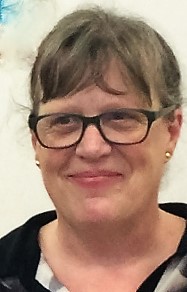How to improve my research technique Thread poster: swaninga
|
|---|
Hello,
I posted a question on avoiding "silly mistakes" on this forum before, and as your replies were very, very useful to me, I'd like to see what you suggest for the following beginners problem:
I often get lost while researching a certain term (no matter in which field...), when the obvious searches
(Wikipedia, Linguee, site:[relevant page.com] in Google) do not work. What can I do to speed me up?
Thank you
Carmen
| | | | Phil Hand 
China
Local time: 22:31
Chinese to English
| Source or target? | Sep 18, 2013 |
It depends a bit on whether you're talking about finding out what a term means in your source language, or finding the right word to use in your target language.
For understanding source words, I find gross Google searches are the way to start. Just plug the term in, read all the results, get as close to understanding as you can, then start to narrow it down by looking at results in the genre that is relevant to your text.
For finding target terminology, I use what you ... See more It depends a bit on whether you're talking about finding out what a term means in your source language, or finding the right word to use in your target language.
For understanding source words, I find gross Google searches are the way to start. Just plug the term in, read all the results, get as close to understanding as you can, then start to narrow it down by looking at results in the genre that is relevant to your text.
For finding target terminology, I use what you might call a "hole in the middle" approach. I search for a lot of terms that collocate with the target term, but don't put anything in for the target term itself. Because I'm translating into my native language, I can read through a lot of search results extremely quickly, and I with a bit of luck the equivalent target term will emerge.
Don't forget searches on Google Books and Google Scholar. They will often give you much "purer" results. ▲ Collapse
| | | | | Happens to the best translators | Sep 18, 2013 |
You have two options, really - keep looking until you find the answer or ask someone - that's pretty much what it boils down to. If you haven't yet built up a "translation support network" of people that you feel comfortable asking, you can always use Kudoz, with the explicit understanding that it is not a perfect system.
If you're looking for help with your search techniques, try searching the source term in quotes and guess the target term (or try a variety of target terms that y... See more You have two options, really - keep looking until you find the answer or ask someone - that's pretty much what it boils down to. If you haven't yet built up a "translation support network" of people that you feel comfortable asking, you can always use Kudoz, with the explicit understanding that it is not a perfect system.
If you're looking for help with your search techniques, try searching the source term in quotes and guess the target term (or try a variety of target terms that you think may match), but also take some time out from translation to look up some good resources - often you will find these when looking for something specific, but will want to go back to them later - so use your bookmarks, or get Evernote - it's great for that sort of thing.
Ultimately, though, if you want to get the translation just right, getting lost is usually where you will find the answer I think the best translators are those who are willing to sit with difficult terms the longest! I think the best translators are those who are willing to sit with difficult terms the longest! ▲ Collapse
| | | | Recep Kurt 
Türkiye
Local time: 17:31
Member (2011)
English to Turkish
+ ...
|
|
|
PamelaC (X)
Sweden
Local time: 16:31
| Google courses | Sep 18, 2013 |
Google offers two free corses to improve your searching method, one basic and one advanced. They are worth checking out, I personally have found them useful:
http://www.powersearchingwithgoogle.com/
| | | | Kay Denney 
France
Local time: 16:31
French to English
| Agree with Sarah! | Sep 18, 2013 |
Getting lost is perhaps not the most efficient way of finding your way, but it is easily the most enjoyable, it's probably the best part of translating.
I love getting lost in a new city, just wandering aimlessly, discovering architectural gems hidden down a dead-end alleyway, and when later on I need to get somewhere quickly, seemingly useless information helps me, because I have acquired visual markers: I have to turn when I see the knobbly tree, or the house is in the street opp... See more Getting lost is perhaps not the most efficient way of finding your way, but it is easily the most enjoyable, it's probably the best part of translating.
I love getting lost in a new city, just wandering aimlessly, discovering architectural gems hidden down a dead-end alleyway, and when later on I need to get somewhere quickly, seemingly useless information helps me, because I have acquired visual markers: I have to turn when I see the knobbly tree, or the house is in the street opposite the tumble-down tree.
Likewise, I also love the seemingly aimless reading of websites that seem to be dealing in the same line of business as my client. I look at theirs, then I look at those of their competitors, at some point moving from French to English. I soak up the style (not sure how it happens but it does), I make notes of certain terms that crop up all over, and gradually start building bridges.
You do need time to do this. But my take is that I get a more "genuine" translation as a result. I'm not just translating what the client said, I'm couching it in language that their English counterparts or clients will instantly relate to. I am convinced that this is largely a result of the soaking-up stage. Sometimes I don't find exact equivalents and have to circumnavigate as best I can. The "aimless reading" stage often proves useful as I grasp how come this term is apparently not needed. It's often because there's some overlapping concept that sometimes will work in the translation and sometimes not. When it doesn't pan out, I will find a way round, and it won't show up as glaringly clumsy simply because I have managed to capture the style needed.
This is of course more a "transcreation" process than pure translation, but then, that's my way of translating.
The process I am describing is especially relevant when tackling new subjects. I don't need to do it for the nth fashion translation. I will sometimes do it when I feel a bit rusty, because I haven't done anything in that field for ages, or when coming back from a long break, or if I feel like I'm just using rather well-worn phrases and it's time to jazz things up a bit, or if I'm translating a particularly well-written, fresh piece. ▲ Collapse
| | | | Nicole L. R.
Ireland
Local time: 15:31
Member (2008)
Portuguese
+ ...
Fantastic link. Thank you for sharing!
| | | | | Online resources and terminology research | Sep 19, 2013 |
Hi all,
This discussion drew my attention because it is related to the subject of my PhD.
If you would like to participate in my research and find out more about how your terminology research techniques differ from other translators performing the same task, please do get in touch. My e-mail address is: [email protected]
I'm looking for translators with 5+ years of experience translating from Engl... See more Hi all,
This discussion drew my attention because it is related to the subject of my PhD.
If you would like to participate in my research and find out more about how your terminology research techniques differ from other translators performing the same task, please do get in touch. My e-mail address is: [email protected]
I'm looking for translators with 5+ years of experience translating from English into any other language willing to devote around 2 hours of their time to this research. All participants will be due credited each time the results are presented at conferences, workshops etc.
Many thanks,
Joanna
[Edited at 2013-09-19 10:58 GMT] ▲ Collapse
| | |
|
|
|
| Both linguee and wikipedia... | Sep 20, 2013 |
.....are sites I treat with great reserve. In the first case you will find many translations which are at best dubious. Learn to spot the bad ones and their sources.
And bear in mind that wikipedia is only as accurate as the person who wrote it, which could be you or me. That might be fine if we're writing about our areas of expertise, but it's not as if you're reading the most respected specialised publication in the field, where any suggestion of inaccuracy will immediately be cha... See more .....are sites I treat with great reserve. In the first case you will find many translations which are at best dubious. Learn to spot the bad ones and their sources.
And bear in mind that wikipedia is only as accurate as the person who wrote it, which could be you or me. That might be fine if we're writing about our areas of expertise, but it's not as if you're reading the most respected specialised publication in the field, where any suggestion of inaccuracy will immediately be challenged. ▲ Collapse
| | | | Oliver Walter 
United Kingdom
Local time: 15:31
German to English
+ ...
| They are usually a good starting point | Sep 20, 2013 |
Noni Gilbert wrote: [about Wikipedia and linguee]
.....are sites I treat with great reserve. In the first case you will find many translations which are at best dubious. Learn to spot the bad ones and their sources.
And bear in mind that wikipedia is only as accurate as the person who wrote it.....
For terminology I frequently use linguee.com and dict.cc. Wikipedia often appears early in the results of a Google search. In my case the search is often terminology in a science or engineering context and then Wikipedia is usually correct; I'm looking for a description (often including a picture) in French or German so that I can recognise the object or concept and hence often know what it's called in English (and sometimes check this by searching English Wikipedia for my idea of the English term). Linguee sometimes has a translation into English for a term that I can't find in dict.cc, but dict.cc is more likely to include what I want for the terms that it has.
As Noni wrote, you need to be careful with all search, and even dictionary, results. They are, at least, suggestions, which will often either:- include exactly what you want, or
- help you to think of better words to use in your next search.
In all cases, you brain needs to be "switched on" to assess the results and decide what you're going to do with them. I think that's one reason why I like translating: it's good exercise for the brain!
Oliver
[Edited at 2013-09-20 23:19 GMT]
| | | | To report site rules violations or get help, contact a site moderator: You can also contact site staff by submitting a support request » How to improve my research technique | CafeTran Espresso | You've never met a CAT tool this clever!
Translate faster & easier, using a sophisticated CAT tool built by a translator / developer.
Accept jobs from clients who use Trados, MemoQ, Wordfast & major CAT tools.
Download and start using CafeTran Espresso -- for free
Buy now! » |
| | Anycount & Translation Office 3000 | Translation Office 3000
Translation Office 3000 is an advanced accounting tool for freelance translators and small agencies. TO3000 easily and seamlessly integrates with the business life of professional freelance translators.
More info » |
|
| | | | X Sign in to your ProZ.com account... | | | | | |











